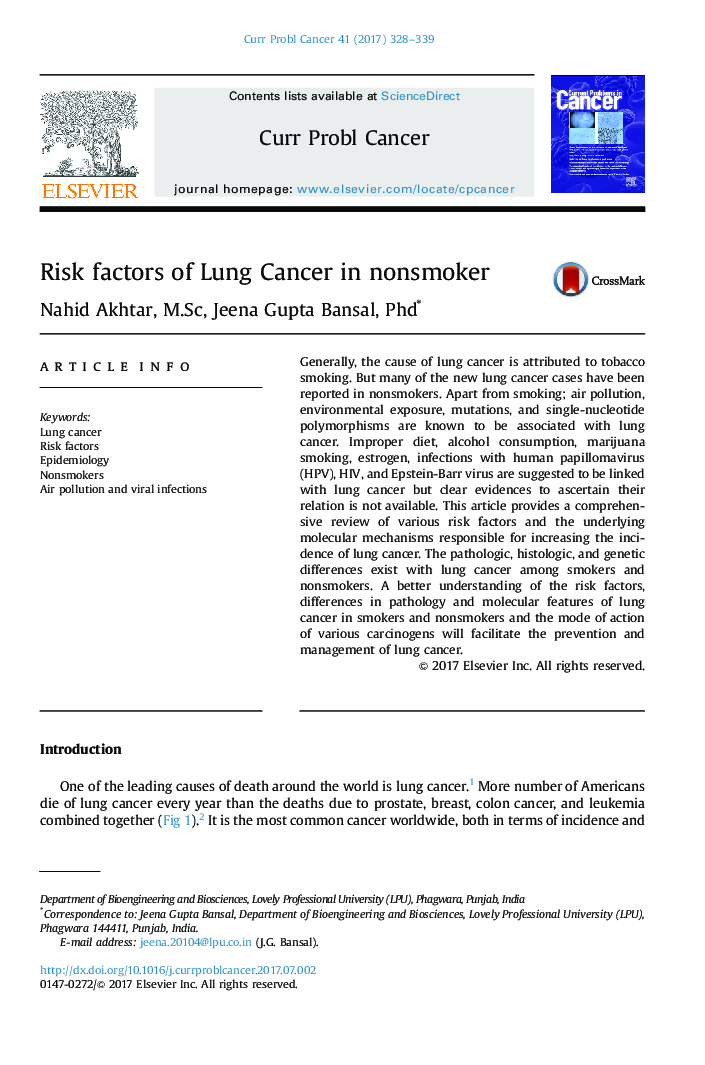| Article ID | Journal | Published Year | Pages | File Type |
|---|---|---|---|---|
| 5664191 | Current Problems in Cancer | 2017 | 12 Pages |
Generally, the cause of lung cancer is attributed to tobacco smoking. But many of the new lung cancer cases have been reported in nonsmokers. Apart from smoking; air pollution, environmental exposure, mutations, and single-nucleotide polymorphisms are known to be associated with lung cancer. Improper diet, alcohol consumption, marijuana smoking, estrogen, infections with human papillomavirus (HPV), HIV, and Epstein-Barr virus are suggested to be linked with lung cancer but clear evidences to ascertain their relation is not available. This article provides a comprehensive review of various risk factors and the underlying molecular mechanisms responsible for increasing the incidence of lung cancer. The pathologic, histologic, and genetic differences exist with lung cancer among smokers and nonsmokers. A better understanding of the risk factors, differences in pathology and molecular features of lung cancer in smokers and nonsmokers and the mode of action of various carcinogens will facilitate the prevention and management of lung cancer.
